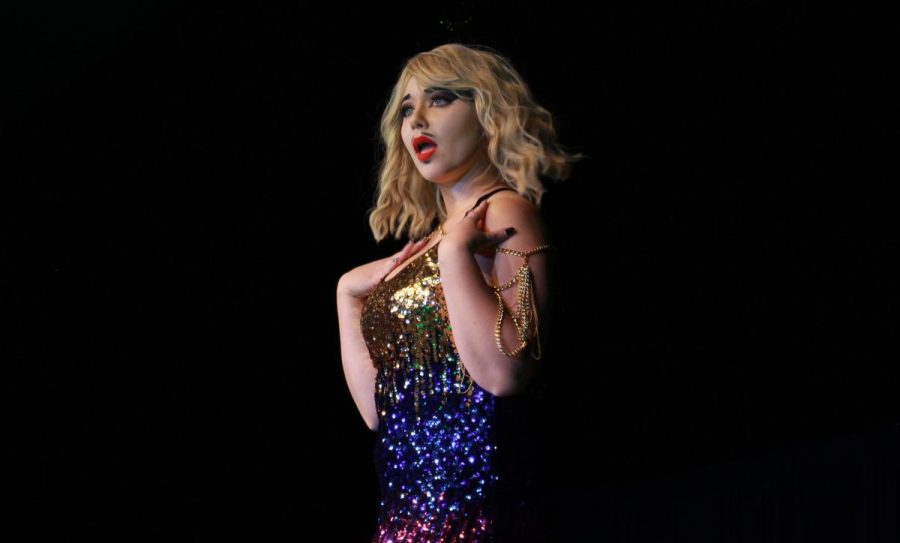Board of Regents and state House write legislation against drag shows
Valentin Georgette-Shakers performing at the 2022 GSA annual drag show.
February 1, 2023
The South Dakota Board of Regents is in the midst of creating a new policy regarding events involving minors on campus.
The change came about after a controversial drag show on campus was advertised as “family friendly.” State lawmakers soon-after expressed their outrage by taking to social media.
The Board of Regents held a special meeting in December which led to all events hosted by South Dakota’s six public universities to be approved by the Regents in order for minors to attend.
“We want our campuses to be safe and welcoming places for students, staff and visitors of all ages, to provide our universities and campus organizations with guidance on events where minors are invited, we have directed staff to expedite the formation of a ‘Minors on Campus’ policy,” said Board of Regents President Pam Roberts in a press release.
Shuree Mortenson, director of communication for the Regents, said the approval method was only temporary until they could get a policy in place.
“We are in the rough draft stages of the policy that will safeguard minors. It will hopefully be able to gain approval in March,” Mortenson said.
If the new policy is adopted, it will pertain to all events on campus including ones sponsored by the universities and by student organizations. The policy will have details on the protocol for events with minors on campus.
The Board of Regents aren’t the only ones making changes. South Dakota lawmakers have proposed two bills that would prevent future events like the drag show. Republican Rep. Chris Kerr proposed House Bill 1116 which bans any university or technical college under the state’s control to use public money, state owned facilities or property to host, fund or promote any “lewd or lascivious content.”
“Lewd and lascivious content” is stated later in the bill as any program, event or literature that includes:
(1) Any specific sexual activity, as defined in § 11-12-1;
(2) Any specific anatomical areas, as defined in § 11-12-1;
(3) Nude or seminude adults, as defined in § 11-12-1;
(4) Adults who remove clothing for the entertainment of one or more individuals; or
(5) Any physical human body activity, whether performed alone or with other persons, including singing, speaking, dancing, acting, simulation or pantomiming, where a performer exhibits a gender identity that is different from the performer’s biological sex through the use of clothing, makeup or other physical markers, for the predominant purpose of appealing to a prurient interest.
House Bill 1125 was introduced Wednesday, Jan. 25 by Republican Rep. Scott Odenbach as an act to expand provisions regarding the protection of minors from certain exhibitions.
At the Jan. 23 Students’ Association meeting, the Senate voted on Resolution 22-12-R, which states the Students’ Association’s continued support for the Gender and Sexualities Alliance (GSA) in opposition of anti-LGBTQ+ legislation.
GSA Ex-Officio, Matthew Albritton, said that this resolution is a way to show support in a time where there is legislation being passed that is not in support of the LGBTQ+ community.
Adonai Ghebrekidan, president of the Black Student Alliance (BSA), chimed in saying that campus organizations like BSA, GSA and LASA are here to help students feel comfortable.
Madeline Brink, a Students’ Association Senator-at-Large, was one of the many individuals in attendance at GSA’s drag show.
“The environment was so loving and accepting and everybody was just having such a great time,” Brink said. “I feel like that’s something that as a body we should be working to preserve.”


























Axel Anderson • Feb 3, 2023 at 11:07 am
Shouldn’t these laws include the extreme sexual contact of male wrestling and “violence “ of physical contact in football?